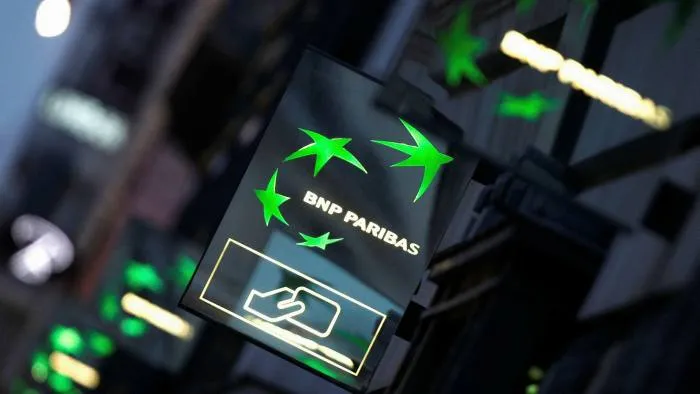
BNP Paribas is facing allegations that its traders mis-sold billions of euros of lossmaking foreign exchange products to Europe’s largest wine exporter, the latest accusations in a widening controversy that has also enveloped Goldman Sachs and Deutsche Bank.
J. García Carrión, founded in Jumilla in south-east Spain in 1890, is in dispute with the French lender over currency transactions with a cumulative notional amount of tens of billions of euros. It claims the lossmaking trades were inappropriately made with one of its former senior managers between 2015 and 2020, according to people familiar with the matter.
BNP is one of several banks facing complaints from corporate clients in Spain over the alleged mis-selling of foreign exchange derivatives, which pushed some companies into financial difficulties.
An internal investigation at JGC found that BNP conducted more than 8,400 foreign exchange transactions with the company over the five-year period, equivalent to about six each working day.
That level of activity was far higher than what the company would have needed for normal hedging of exchange-rate risk on international wine exports, the people said, adding that the Spanish company had shared the results of its internal probe with BNP.
While the vast majority of the lossmaking trades related to euro-dollar swaps that moved against the bank, some were in currency pairs where JGC has little or no operations, such as the euro-Swedish krona.
As a direct result, the €850m-revenue company made about €75m of cash losses in those five years, while BNP could have made more than €100m of revenue from transactions, the people added. Many of the deals were made through trading desks in London.
Executives have demanded compensation for at least some of the losses, arguing that BNP’s traders or compliance department should have spotted and reported the disproportionately high level of transactions and profits from a single client, according to multiple people with knowledge of events.
“BNP Paribas complies very strictly with all regulatory obligations relating to the sale of derivatives and foreign exchange instruments,” the bank said in a statement. “We do not comment on client relationships.”
JGC declined to comment.
Separately, the Spanish wine producer is suing Goldman Sachs in London’s High Court for a partial refund of $6.2m of losses caused by exotic currency derivatives. Goldman has maintained the products were not overly complex for a multinational company with hedging needs and were entered into with full disclosure of the risks.
In Madrid, the wine company has also brought a case against a former senior executive who was responsible for signing off the lossmaking deals. JGC alleges this person conducted the deals in secret and covered them up internally by falsifying documents and misleading auditors.
In the London lawsuit, JGC alleges its executive was acting “with the encouragement and/or pursuant to the recommendations” of Goldman staff “for the purposes of speculation rather than investment or hedging”.
Deutsche Bank has been investigating for months whether its traders in London and Madrid sidestepped EU rules and convinced hundreds of Spanish companies to buy sophisticated foreign exchange derivatives they did not need or understand.
The Financial Times has reported that the German bank has settled many complaints brought against it in private and avoided going to court.
People familiar with the matter told the FT that the departures of Kitchen and Tinker were linked to the probe into the alleged mis-selling, which appears to have occurred in units that at the time were overseen by the two.
The bank declined to comment. Kitchen and Tinker did not respond to requests for comment.




















